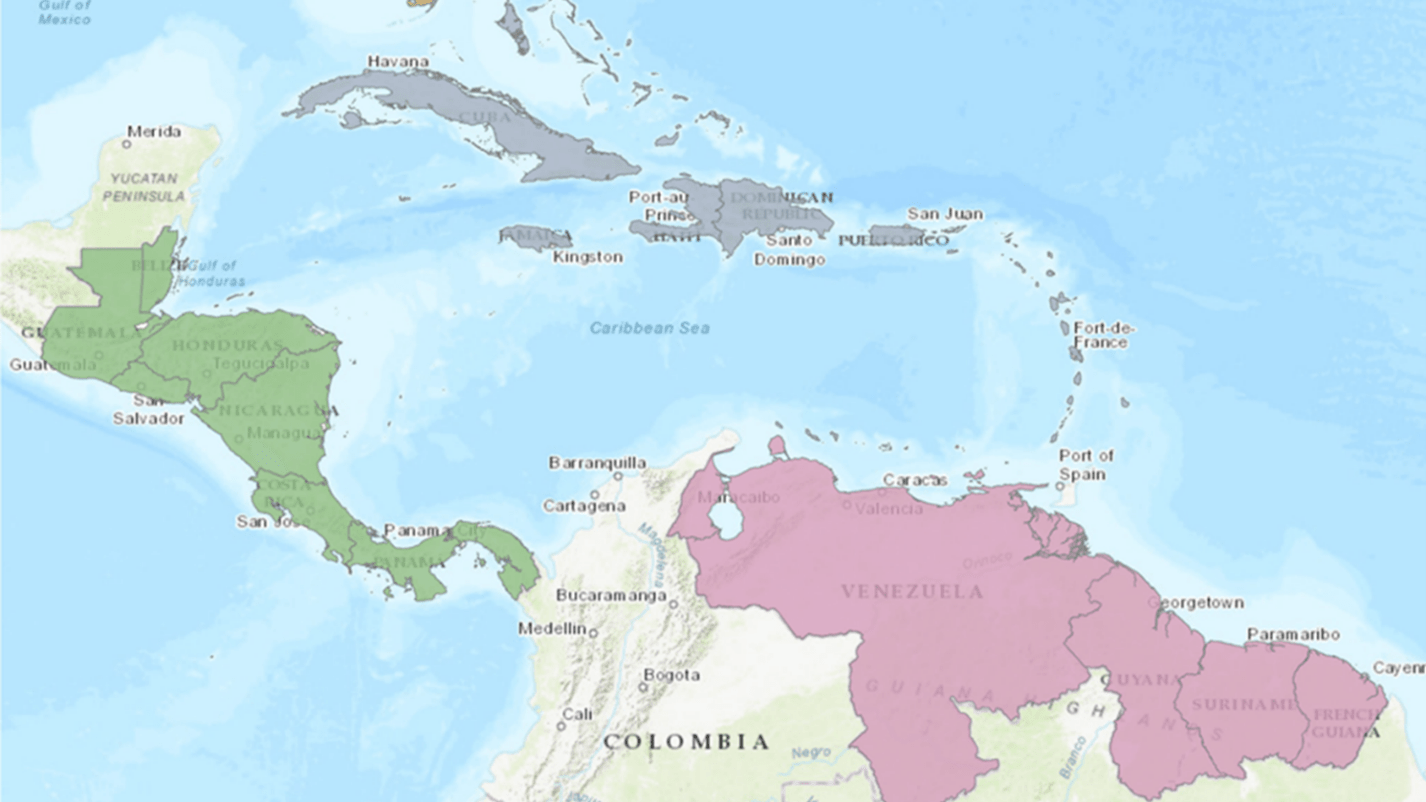Greater Caribbean Safeguarding Initiative

In 2008, APHIS Plant Protection and Quarantine (PPQ) established the Greater Caribbean Safeguarding Initiative (GCSI), a national offshore plant health safeguarding program.
The GCSI provides PPQ and its partners in the Greater Caribbean Region (GCR) the opportunity to establish a perimeter defense against the introduction of high-risk plant pests into the GCR through collaborative efforts to harmonize quarantines, exclusion strategies, and other safeguarding initiatives. GCSI's mission is to strengthen the safeguarding system in this region by establishing partnerships with GCR countries and partner organizations to prevent, detect, and control existing and emerging plant pest threats.
For the scope of the GCSI program, the GCR is defined to include the Caribbean islands; portions of South America (Venezuela, Suriname, Guyana, and French Guiana); Central America; Panama; Puerto Rico; the U.S. Virgin Islands; and the United States.
Overview
The Greater Caribbean Safeguarding Initiative (GCSI) had its beginnings from a 1999 Stakeholder Review of the PPQ safeguarding system —“Safeguarding American Plant Resources”—where a need was identified to harmonize pest exclusion strategies between countries, on a regional basis, with a recommendation for a longer-term initiative to include a plan to apply a perimeter approach for pest and disease suppression activities.
In January 2006, PPQ initiated the Caribbean Safeguarding Initiative (CSI) as a pilot program in Florida. The goal of the pilot was to target and reduce the risk of plant pests establishing in the United States through the Florida pathway. This was quickly followed up by a July 2008 conversion from the CSI to the GCSI, a national program coordinated by PPQ headquarters in Maryland, with a much broader scope—the Caribbean islands; portions of South America (Venezuela, Suriname, Guyana, and French Guiana); Central America; and the United States—utilizing the same goal of coordinating activities to prevent the introduction and spread of high-risk plant pests through collaborative efforts with our partner countries in the GCR. The region is very politically, culturally, and ethnically diverse, with a number of overseas territories of France, Netherlands, and the United Kingdom, making it a very challenging and rewarding region to operate in.
Nonetheless, APHIS, through the GCSI, continues to protect American agriculture and facilitate safe trade by establishing regional partnerships to prevent, detect, and control existing and emerging plant pests to protect the United States against plant pests and diseases coming into and through the through the GCR.
Caribbean Pest Diagnostic Network
The web-based Caribbean Pest Diagnostic Network (CPDN) database provides a collaboration and communication tool for plant inspectors, scouts, consultants, extension personnel, and diagnosticians to share information on plant pests. The system uses field data and digital media as tools for enhancement of diagnosis of plant disease, insect, weed, invasive species, plant management, physiology, and nutrient problems.
Through interactions on the Internet between field personnel and diagnostician or experts, problems can be quickly communicated and assessed. Specialists around the world can perform diagnosis and identification and provide best management practice recommendations to the users. The archived CPDN database becomes a resource for research, educational programs, and classroom teaching.
The threat of pest and invasive species is real and has the potential to seriously damage our agriculture and food supply. The web-based diagnostic system can be used as a tool to enhance the capacity for screening, monitoring, mapping pests in time and space, and quickly detecting existing or new high-consequence pests and dangerous plant pathogens.
Don't Pack a Pest Program
The Don’t Pack a Pest traveler education and outreach program, is an international, multi-agency initiative designed to raise public awareness about the risks associated with travelers unintentionally transporting pests and diseases by carrying agricultural and food items in their luggage when they travel.
Contact Us
For questions or more information, please contact:

